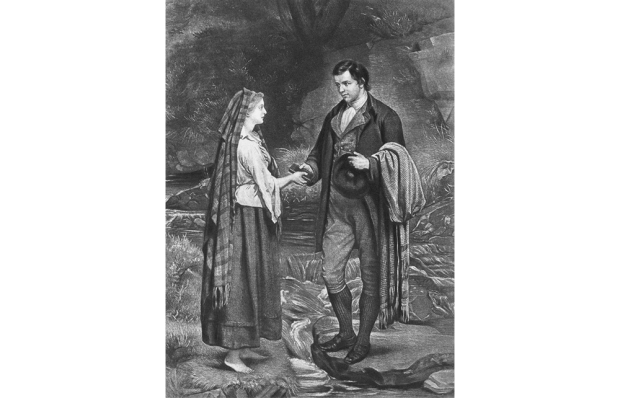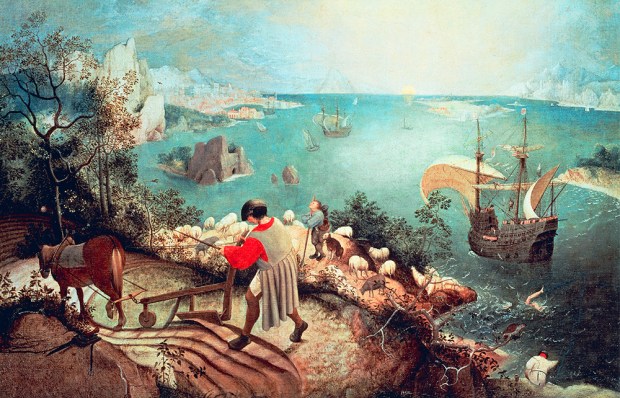In Competition No. 3073 you were invited to submit a short story in the Gothic style with a topical twist.
The seed of this challenge was the recent reopening of Strawberry Hill House and Garden, the neo-Gothic creation of Horace Walpole, whose 1764 chiller The Castle of Otranto is regarded as the first Gothic novel.
Russell Clifton deployed the framing device, updated for contemporary sensibilities: ‘Gathered about the campfire that October evening in Lark Wood, someone suggested we tell horror stories. Trigger warnings were issued, several group members adjourning to the designated safe space of a distant clearing…’ And Sally Fiery imagined the genesis of a 21st-century Frankenstein-like creature: ‘The Doctor… had never expected to create life from those hastily assembled body parts, the fleshy limbs, unruly hair…’
The spirits of Shelly, Poe and Stoker hovered over an agreeably spooky entry, in which Paul Freeman, Frank Upton and Richard Corcoran stood out but were narrowly outflanked by the winners, printed below, who pocket £30 each.
Over dinner at Castle Echt, the Duke entertains, enumerating the resident ghosts. The decades-dead boy trapped in the blackness of a forgotten cellar who mourns light itself, the poltergeist fiddler who plays demented arpeggios in the music room should any superior talent chance a recital, the thwarted swordsman sworn to pitch any lover from the battlements: each tale is smoothed to perfection from repeated telling. Yet throughout, eyes and minds wander to the Duchess at his side. She sits, silent and still as a subterranean lake, her raven hair and alabaster skin rendered terrible by the absence of a mouth. Plied sufficiently with spirits, footmen sometimes speak of her carefree vivacity in youth and how, on her wedding day, she signed in blood a document legally and supernaturally binding by which she promised never to reveal the Duke’s foulest proclivities. Her eyes flash momentarily as the Duke’s monologue continues.
Adrian Fry
Sigmund, a friend of my youth, had warned me that beneath the orderly mainstream of civilised reason that governs our lives there bubbled dark, disruptive energies — the beast in us, as it were. I had laughed at him then, foolishly sanguine. How could I have foreseen the horror that awaited, that monstrous night when my faith in human rationality was shattered for ever?
It had begun in hope, for I felt our victory — that of sanity and decency — was guaranteed, how could it be otherwise? It ended, shamefully, with my first taste of the ardent spirits that thereafter ensured the downward direction of my life. Even seeking oblivion in the bottle, I can never extinguish the memories: the annihilating shock of disillusion, the red-trousered horde’s swinishly drunken celebrations, an insane Prime Minister, her brain devoured by zombies, screaming and gibbering empty reassurances to a mostly incredulous public.
Basil Ransome-Davies
Within the chamber’s panelled walls, they gather on seats of green leather to share their dark thoughts and devious plans for the future of mankind.
They are suddenly silent as, with ceremonial pomp, there enters a strange being, small of stature, yet one who exudes an aura of menace. Before him is a procession of black-robed acolytes. At the front, gleaming in silver gilt, the symbolic mace is carried. The small man takes his seat, facing the assembly. ‘Order!’ he cries. The atmosphere is hostile; he is to be expunged from the fellowship, yet he is in no hurry to leave.
In the shadows hovers the ghostly presence of Sir Peter de la Mare, the ‘rat of renown’, the first man to take the chair. Behind him linger the headless spirits of the seven speakers executed for offending the ruling powers. They return with a deadly warning. Heads will roll.
Sylvia Fairley
Ivy thickened at the doorway; it felt clammy; it seemed to be suppurating. She pushed beyond, hearing the faint drawl of the door as it swung ajar. It smelt of rotting apples, of rich and redolent and viscous catarrh, of dark dreams in which birds and horses and insects perished, and children were silenced.
‘This is the place.’ A gravelly voice came out of a far corner: knowing, insidious, ancient.
‘Mr Cobb?’ she whimpered. A figure limped forward.
‘Fui quod es, eris quod sum. It is Cobb, madam. Here we see the store where all information was held, where numbers were counted, examinations calibrated: here, madam, is the sum of fifty years.’
‘Fifty! How can the records of so many have been stored in such a small room! The quality data itself —’
‘In those days, madam head, there was no quality data. When I was first caretaker…’
She swooned.
Bill Greenwell
The fog drifting down from the Andalusian summits like a ghostly, enveloping veil swirled about the town, seeming to clothe its mediaeval centre with a further patina of age and decay. Even the brilliant chiaroscuro of the one quarter of town where an intense band of light cut the voluminous darkness was invaded by its presence. There, both watchers and watched felt engulfed by an eerie miasma that stretched their nerves. Curses in motley tongues rose in the chilly evening as the ritual all had gathered for was enacted.
Kane peered through the cloudy air, certain of his mission but unsure of its achievement given the hostile forces prompting a chorus of threat from all sides. The terror of isolation froze his will till he saw a blurred figure approaching.
Maguire, he thought, and for an instant the fear lifted.
Then he realised it wasn’t Maguire. It was Ramos.
G.M. Davis
No. 3076: bad romance
You are invited to submit a seriously misguided love poem — one that aims to seduce but would in fact have the opposite effect. Please email entries of up to 16 lines to lucy@spectator.co.uk by 21 November. Only three entries each per competitor, please.
Got something to add? Join the discussion and comment below.
Get 10 issues for just $10
Subscribe to The Spectator Australia today for the next 10 magazine issues, plus full online access, for just $10.
You might disagree with half of it, but you’ll enjoy reading all of it. Try your first month for free, then just $2 a week for the remainder of your first year.













Comments
Don't miss out
Join the conversation with other Spectator Australia readers. Subscribe to leave a comment.
SUBSCRIBEAlready a subscriber? Log in